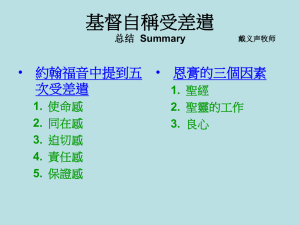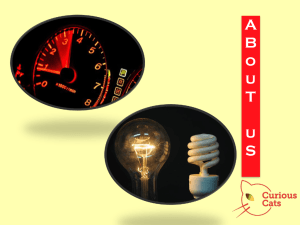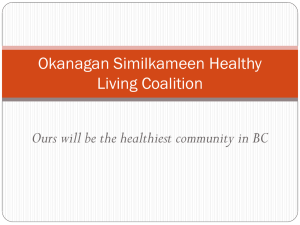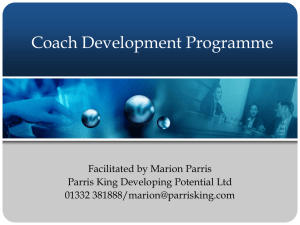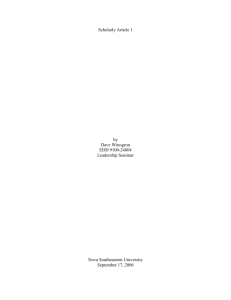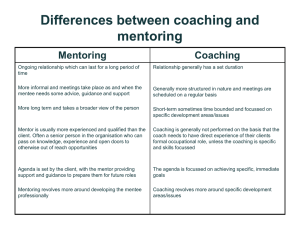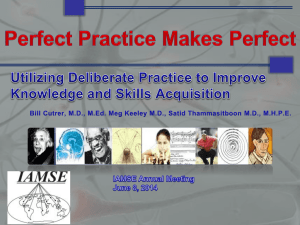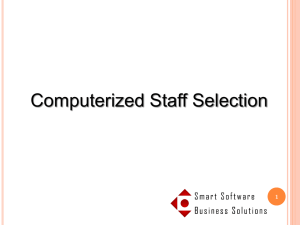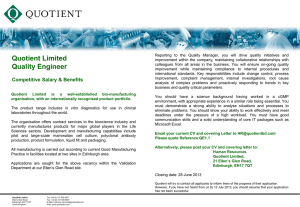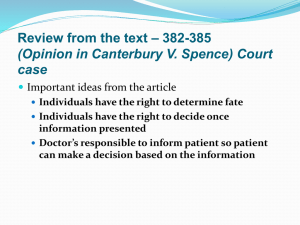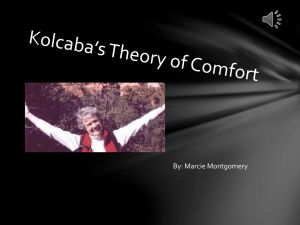People and Change
advertisement
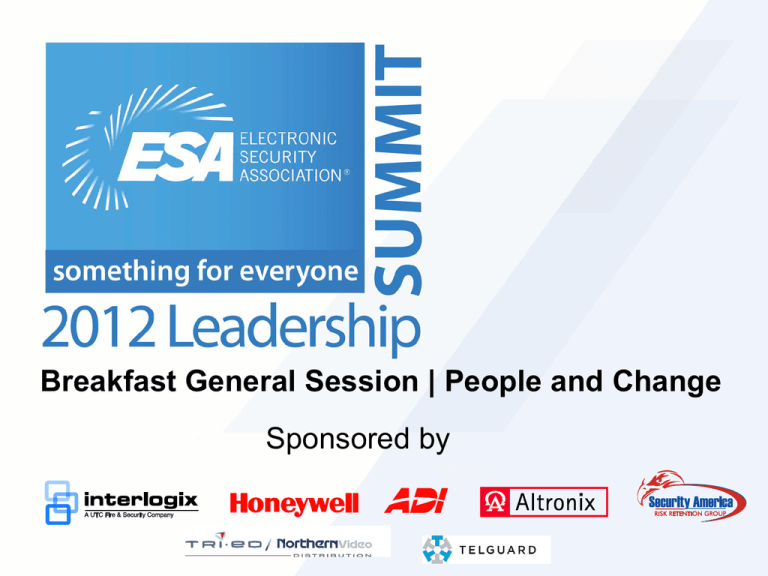
Breakfast General Session | People and Change Sponsored by Breakfast General Session | People and Change Donald J. Hahn CFCC, CPVA, CPBA Chief Learning Officer Security Business Institute Sponsored by Common Problems Cited By Leaders • I need a better way of setting goals for employees. • I need a better way of holding employees accountable for achieving goals. • I want to hire the right people & fire the wrong people. Common Problems (cont’d) • I wish my people communicated more effectively. • I wish my supervisors would lead employees more proactively. • I don’t know if my employees are fully engaged. People & Change Are people capable of change, and if so, to what degree? Why some do … and some don’t? What critical success factors should I look for? What is my role in effecting Change? Are people capable of change, and if so, to what degree? The Amenability of Competencies to Change Relatively Easy to Change Harder But Doable Very Difficult to Change Risk Taking Judgment Intelligence Leading Edge Strategic Skills Analysis Skills Education Pragmatism Creativity Experience “Track Record” Conceptual Ability Organization/Planning Initiative Integrity Self-Awareness Excellence Standards Assertiveness Communications-Oral Independence Inspiring “Followership” Communications-Written Stress Management Energy First Impression Adaptability Enthusiasm Customer Focus Likeability Ambition Political Savvy Listening Tenacity Selecting A Players Team Player Removing C Players Negotiation Skills Coaching/Training Persuasiveness Goal Setting Team Builder Empowerment Change Leadership Performance Management Diversity Running Meetings Conflict Management Compatibility of Needs Credible Vision Balance in Life Why some do … and some don’t Comfort Zone Motivation /Values Comfort Zone Behavior Competency EQ or IQ?? Intellectual Quotient Emotional Quotient • Measures normative intellect cognitive abilities, such as the ability to learn or understand new situations. • Measures one's emotional intelligence, as defined by the ability to use both emotional and cognitive thought. – Thinking – Comprehension – Processing – – – – Adversity Empathy Resiliency Composure Emotional Quotient 5-major components : – – – – – Intrapersonal Skills Interpersonal Skills Stress Management Adaptability General Mood “When I compared star performers with average ones in senior leadership positions, nearly 90% of the difference in their profiles was attributed to emotional intelligence factors rather than cognitive abilities.” –Daniel Goleman Employee Engagement How can we grow? Do I belong? What do I give? What do I get? What Critical success factors should I look for? Traits Shared By Successful People What is the single greatest characteristic of successful people? What are some other key characteristics? What is the single greatest attribute needed for change? Competency Competencies and Stages of Change Unconsciously Competent Consciously Competent Unconsciously Incompetent Consciously Incompetent Consciousness Learning Model Your Role In Effecting Change: Do your people understand their role? Do your people understand their gaps? Do they take responsibility to close those gaps? Do you hold them accountable? Comfort Zone & Remedies Motivation /Values HIRE Comfort Zone Behavior COACH TRAIN Competency Management Focus Coaching Behavior People will only perform in a manner consistent with their self concept. Motivators Competency Mentoring Training • Performance reviews are a critical and ongoing process to fill the gaps between current and desired results. • Do you have a “people plan” designed to improve your human capital? Your People Plan Production (A) Trend (B) Potential (C) Trend (D) Top 25% 2nd 25% 3rd 25% Bottom 25% Trending Key: ↔ ↑ ↓ Same Growth Decline Ongoing Coaching and Support Standards & Accountability 2012 Goals and Objectives PIP Training and Development Coaching and Feedback PIP Large Pressure for valid strategies (good strategies can emerge) Difficult for strategies to emerge small Feedback: Consistent and Continuous Little pressure for valid strategies (good and bad strategies can coexist) Superstitious learning quite likely Noisy Perfect Quality of Feedback Liberate… Don’t Legislate! Standards Consequences Ownership "It is not the strongest of the species that survives, nor the most intelligent, but the one most responsive to change." Charles Darwin “Let’s not forget that the little emotions are the great captains of our lives and we obey them without realizing it. Vincent Van Gogh What’s your Emotional Quotient? Confidential, complimentary online assessment delivered to your desktop HOW? Write “EQ” on your business card, leave it with us at the end of the session Thank You “Emotional Intelligence” “Good to Great” “Human Sigma” “The Tao of Coaching” Daniel Goleman Jim Collins Fleming & Asplund Max Landsberg
